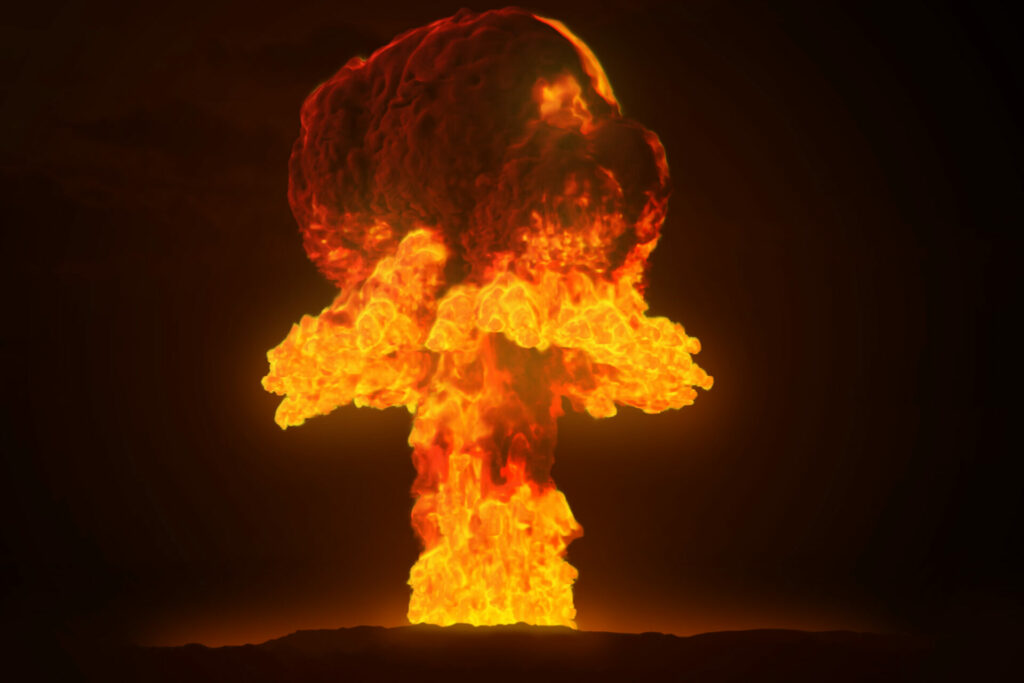The number of operational nuclear warheads across the world increased sharply in 2022, driven largely by Russia and China, according to a report published by Norwegian NGO Norsk Folkehjelp (Norwegian People’s Aid).
At the start of this year, nine official and unofficial nuclear powers fielded 9,576 nuclear warheads ready to use, equivalent to “more than 135,000 Hiroshima bombs”, according to the NGO’s Nuclear Weapons Ban Monitor.
Russia has resorted to repeated thinly-veiled nuclear threats to attempt to discourage Western support for Ukraine and intimidate the international community.
On Saturday, Russian President Vladimir Putin announced that he had secured the agreement of Belarus to station “tactical” nuclear weapons within the country. This brings Russian nuclear weapons within closer reach of the European Union.
An additional 136 nuclear warheads were added to the international stockpile of doomsday weapons thanks to Russia, which controls the largest arsenal on the planet with 5,889 operational warheads, as well as China, India, North Korea, and Pakistan.
“This increase is worrying, and continues a trend that started in 2017,” said Grethe Østern, editor of the Nuclear Weapons Ban Monitor at Norsk Folkehjelp. “If this does not stop, we will soon see an increase also in the total number of nuclear weapons in the world, for the first time since the Cold War.”
Related News
- Belgian military expert downplays Putin's decision to station nukes in Belarus
- US deployment of upgraded nukes to Europe condemned by anti-nuke group
The total stock of atomic weapons is still shrinking, largely thanks to the destruction of old warheads by Russia and the United States. In total, the total number of warheads fell from 12,705 to 12,512 due to these efforts. Nevertheless, this dynamic may soon reverse.
On 21 February, Russian President Vladimir Putin announced that Russia would pull out of a key nuclear agreement with the US, the New Start treaty, which established a limit on the number of warheads that both sides could deploy. This decision has been described as “completely reckless” by anti-nuke group ICAN.

